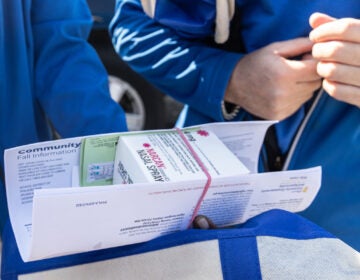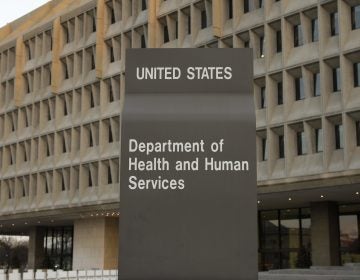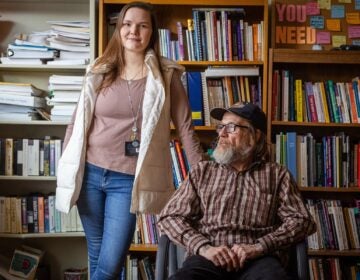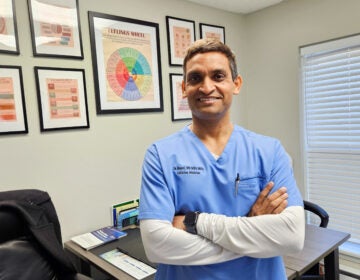Addiction treatment in Pa. prisons is improving, new report shows, but experts say significant gaps remain
About 86% of county jails now offer methadone or buprenorphine, medications that are effective in treating opioid use disorder.
Listen 1:38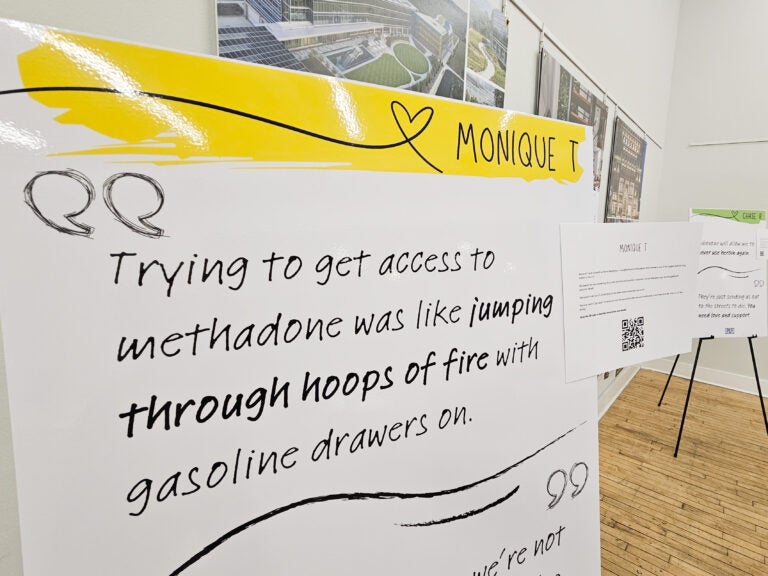
The Pennsylvania Institutional Law Project launches "Let Us Live," a series of testimonials from people currently and formerly incarcerated about accessing treatment for opioid use disorder, at the Center for DesignPhiladelphia, Nov. 18, 2024. (Nicole Leonard/WHYY)
From Philly and the Pa. suburbs to South Jersey and Delaware, what would you like WHYY News to cover? Let us know!
Treatment options for opioid use disorder in Pennsylvania jails and prisons are improving, according to a new report, but barriers remain for people who are incarcerated and seeking help with addiction.
About 84% of county jails now provide people with methadone or buprenorphine medications — that’s up from just 32% of jails in 2022, according to the Pennsylvania Institutional Law Project.
The nonprofit legal aid released new data this week on the status of treatment access for people in jails and prisons.
The Law Project found that more jails and prisons are providing treatment to people who are already on medication when they arrive. But few jails provide “induction” or new enrollment into treatment, said Sarah Bellos, staff attorney.
“Induction” treatment is, “when they really just treat everyone who needs it. Everyone who has opioid use disorder gets medication,” said Bellos. “So, while we see this [data report] as good and we see it as an improvement, we still see a lot of problems and a lot of gaps.”
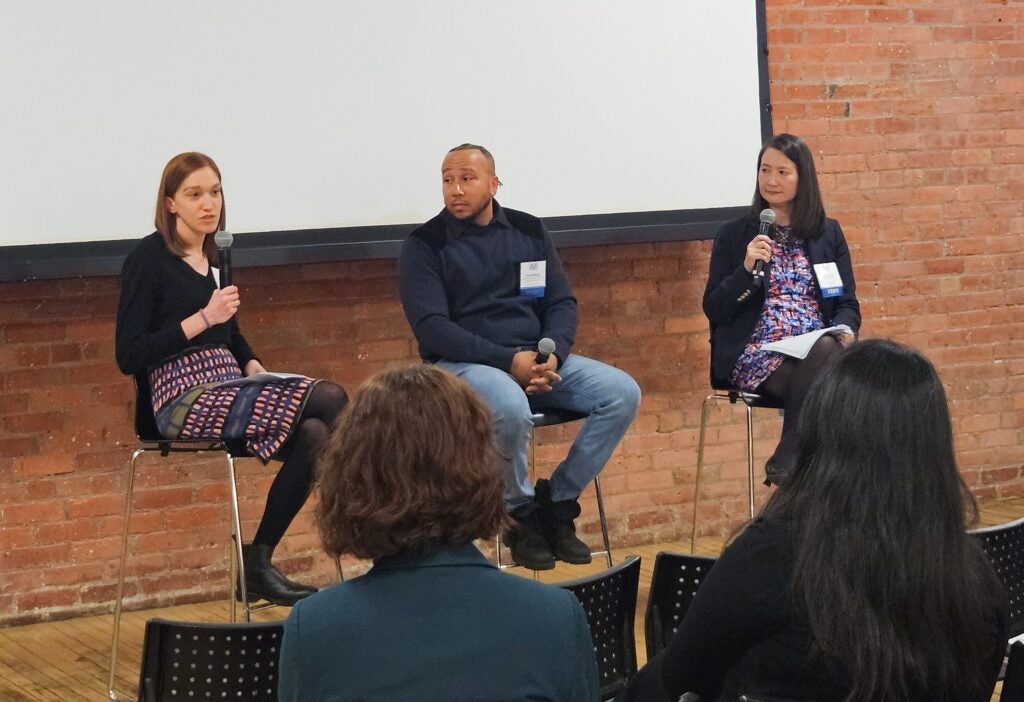
Among the 52 jails that offer treatment across the commonwealth, 36 only provide continuation treatment, while 16 also offer medications to people who want to enroll in new treatment while incarcerated.
And many of these facilities specifically don’t offer methadone, a treatment medication that is more strictly regulated, even though studies show it is highly effective for opioid use disorder.
“A jail can’t just say, ‘We’re not offering that one cause it’s too hard,’” Bellos said. “If it’s medication that someone needs to treat a disease, they have an obligation to provide it.”
To increase awareness about remaining gaps in care, the Pennsylvania Institutional Law Project launched ‘Let Us Live,’ a storytelling series of testimonials from people currently and formerly incarcerated who talk about the challenges of living with opioid use disorder.
One video features Chase R., identified by his first name only for privacy reasons. His addiction began after he was prescribed opioids while recovering from a motorcycle accident at 21 years old.
Eventually, Chase began using heroin and fentanyl on the street.
“Opioids really had a really strong hold on me, to the point where I became suicidal in the past, like I didn’t want to live anymore, because I didn’t want to keep hurting the people that I love,” Chase, now 37, says in his testimonial. “It’s been nothing but a battle ever since.”
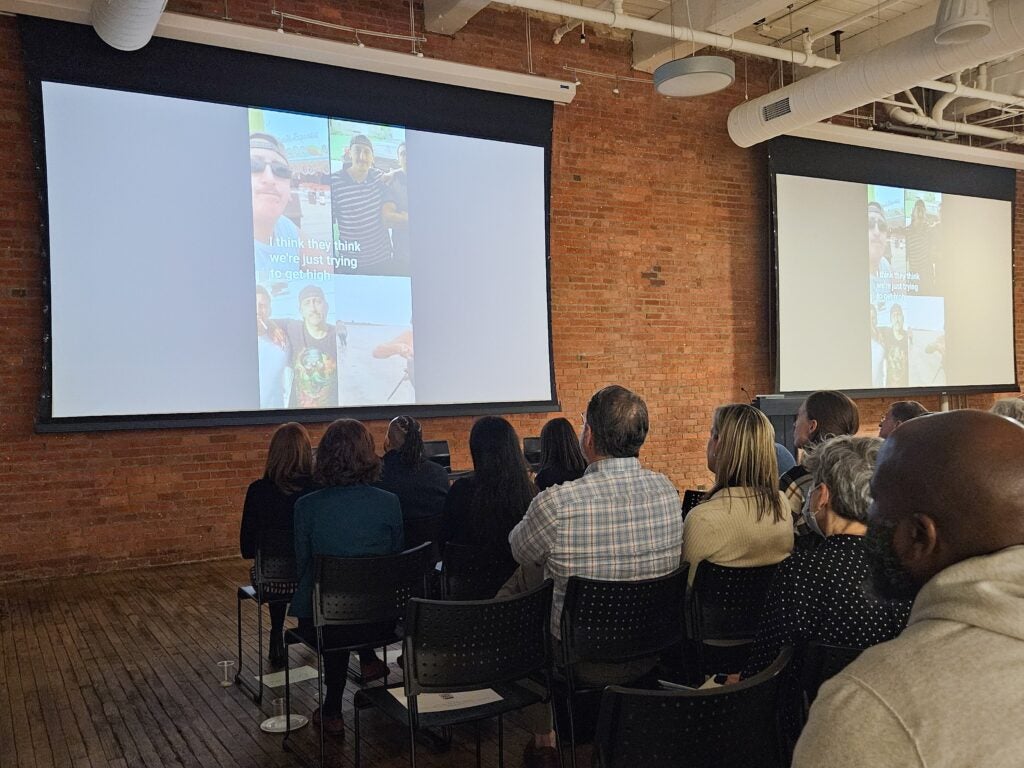
Chase had access to the medication buprenorphine while he was in county jail, but he was cut off from treatment after he was transferred to state prison, which restricts medication to people who’ve already been taking it for at least 60 days.
Chase was 10 days short of that requirement, he said.
“You feel like you’re forgotten about and no matter what you do or how hard you fight, you’ll never win,” he says in a video, which only features his voice.
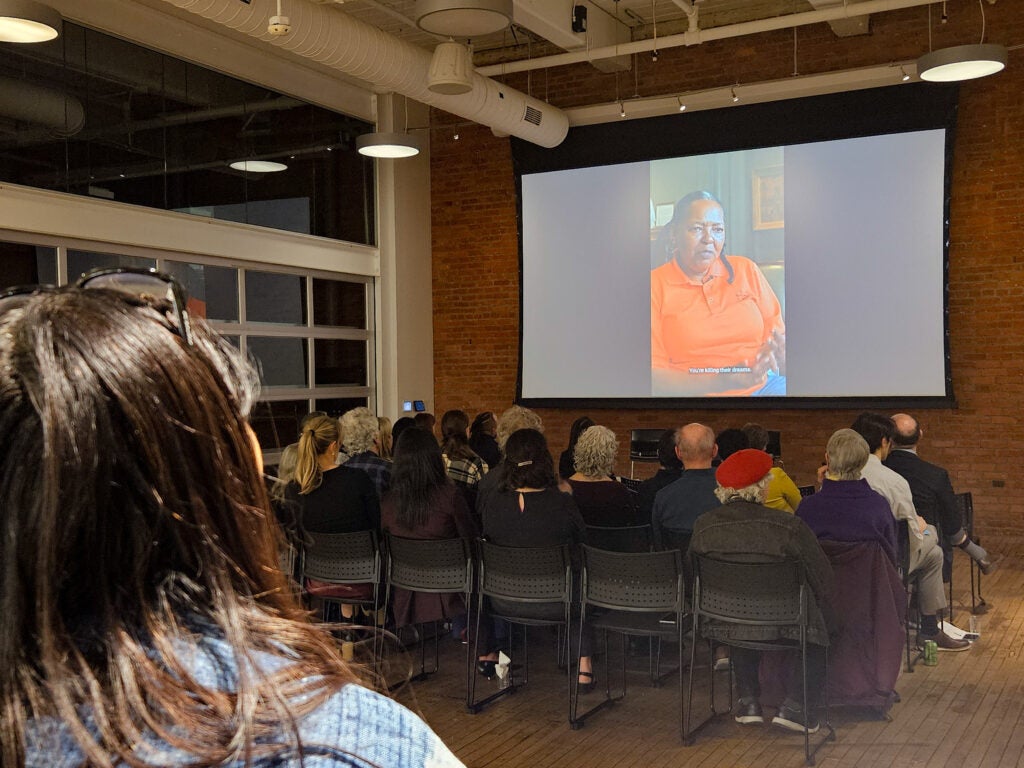
Storytelling producer and journalist Ariel Goodman said she wanted the series to show the true toll of opioid use disorder in prisons and how gaps in care affect people in their everyday lives.
“It’s a human story of profound injustice,” she said. “These stories are ultimately fragments of a full story that we will never know, because they are stories of people who are locked away.”
If you or someone you know is in crisis, call or text the national 988 Suicide & Crisis Lifeline. The hotline is staffed 24/7 by trained counselors who can offer free, confidential support. Spanish speakers can call 1-888-628-9454. People who are deaf or hard of hearing can call 1-800-799-4889.

Get daily updates from WHYY News!
WHYY is your source for fact-based, in-depth journalism and information. As a nonprofit organization, we rely on financial support from readers like you. Please give today.


